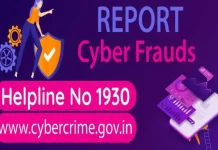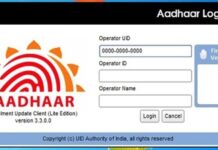Important Security Guidelines for Common Services Center VLEs
Below are some important guidelines related to basic security hygiene.
· Use the latest version of Internet browser.
· Consider using the built-in security features that are provided with your Internet browser instead of disabling them.
· Maintain and run anti-virus software to detect new threats.
· Use caution when downloading files, installing software, or opening email attachments from unverified or unknown sources. Many of these files contain spyware or key-logging programs that can send information back to a malicious site.

Be suspicious of emails purporting to be from a Financial Institution, government department or other agency requesting account information, account verification or banking access credentials such as User ID’s, PIN’s, Codes and similar information. Opening file attachments or clicking on web links in suspicious emails could expose the system to malicious code that could hijack your computer.
We recommend clearing the browser cache before starting an Online Banking session in order to eliminate copies of web pages that have been stored on the hard drive.
Always lock your computer when you leave it unattended. Set the computer to automatically lock after a set period of inactivity, e.g. 5 minutes.
· When you are finished with your computer turn it off or disconnect it from the Internet by unplugging the modem or Ethernet/ DSL cable.
· Properly dispose of old computers and ensure all sensitive information is removed from the hard drive. Reformatting the hard drive may not be sufficient – use specialized software to erase information.
· Turn off and remove services that are not needed on computers. Allow the use of CDs, DVDs, USB devices for legitimate business needs only.
Email Security Guidelines
· Question suspicious emails! We will never send you an email asking for confidential information or your Online Banking ID or PIN.
· If you receive an email that appears to be suspicious, do not reply to it or click on the link that it provides. Simply delete it.
· If you think you may have provided personal or account information in response to a fraudulent email or website, report the fraud immediately, change your PINs, and monitor your account activity frequently.
· Avoid clicking on links provided in emails. It is always better to type the address into your browser.
· Open email attachments only if you know the sender. It is best to scan attachments with your anti-virus software prior to opening.
· Most computer files have filename extensions such as “.doc” for documents or “.jpg” for images. Any file that appears to have a double extension, like “heythere.doc.pif” is extremely likely to be a dangerous file and should never be opened.
· Never open email attachments that have file endings of “.pif”, or “.vbs”. These are file extensions for executables, and are commonly dangerous files.
· Be careful and selective before providing your email address to a questionable website. Sharing your email address makes you more likely to receive fraudulent emails.
· Confirm the validity of all requests for sensitive personal, financial, or account information, particularly if they are made with an urgent or threatening tone.







